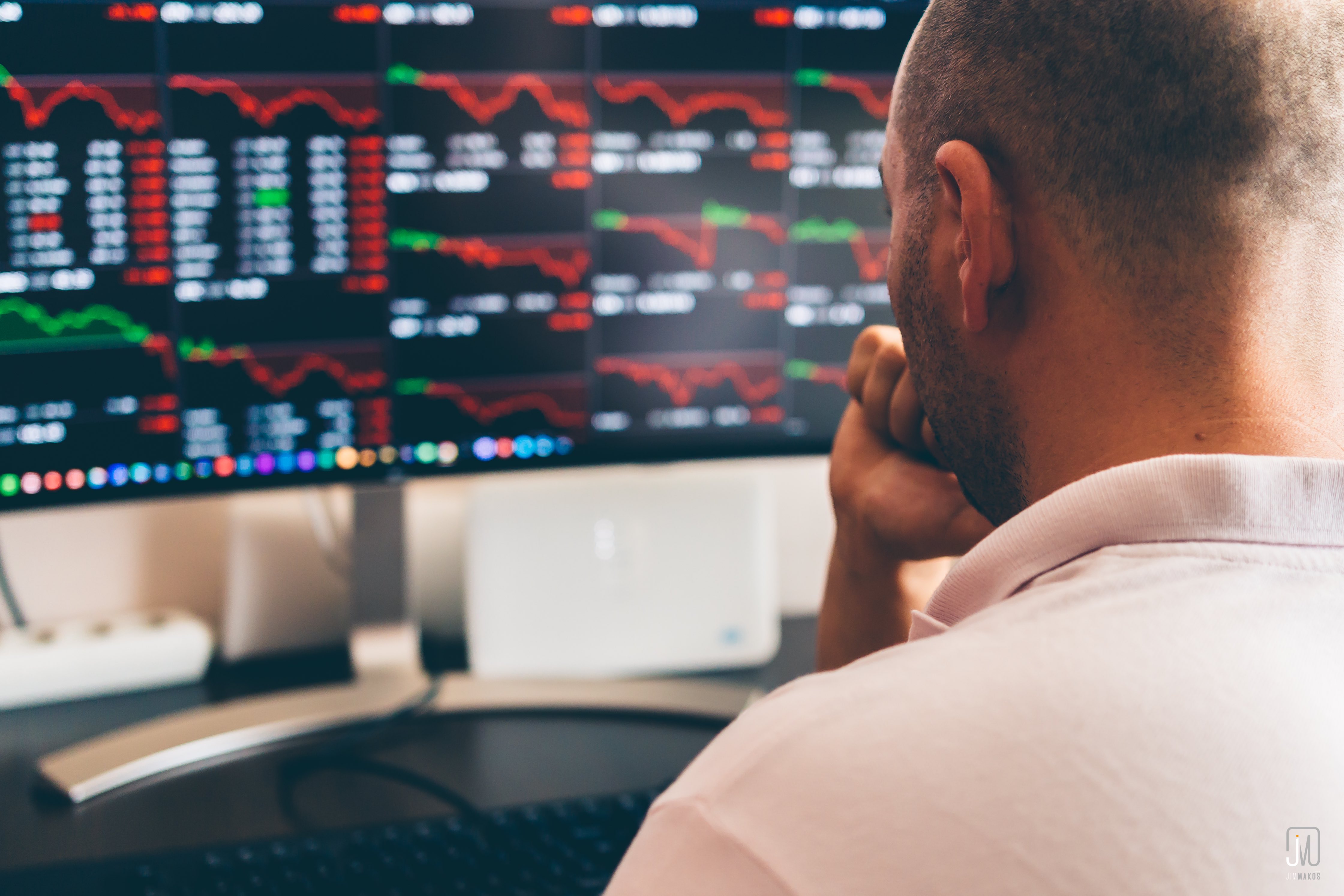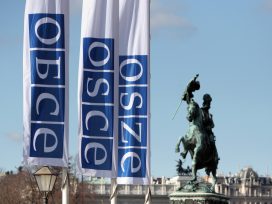‘Can you see this bag?’ Sanjarbek Nasirbekov, an Uzbek technology expert and bitcoin trader, asks me pointing to a black sporty backpack resting on a hanger. We are sitting in his Tashkent office on the third floor of a hip co-working space with a gym and a game room, sipping afternoon tea. ‘This is where I carry the cash when I go to Moscow,’ he explains. Sanjarbek’s trips to Russia with the black backpack began when his business started growing and his clients’ demand for bitcoin increased. At the time, buying two bitcoins per day from his Moscow-based partner was no longer a sustainable option. Sanjarbek needed more. And his Russian partner could help him.
Through a network of intermediaries, each getting a commission for their referral, Sanjarbek reached the top of the business chain. At 11:40 AM, he arrived in Moscow City, the country’s main financial district, and checked himself in at the reception desk of an elegant skyscraper.
Crypto boom
Soon after, Sanjarbek was in a lift, passing the endless floors of the building, accompanied by a stranger who would soon introduce him to the people that could help him with business. He was asked to wait and queue behind other men with backpacks. When his turn came he was escorted by armed guards into a closed room. They asked him to put his arms up and they conducted a careful security check. The atmosphere was like something in a film. ‘Apart from you, there is no one. If they want to get rid of you, they can do that,’ Sanjarbek recalls. He passed the bag full of US dollars – enough to cover the cryptocurrency deal and the commission – to a cashier together with his bitcoin address. Seconds afterwards, his phone screen showed that the bitcoins were transferred to his virtual wallet. For the next hour cryptocurrency miners across the country would consume a substantial amount of energy to verify the transaction. After the whole process, Sanjarbek could now use his newly-acquired coins.
According to the Russian Association of Cryptocurrencies, three million Russians own cryptocurrency, and 70,000 work in areas of the cryptocurrency sector other than mining – a process of verifying transactions and adding them to the blockchain digital ledger. In the first half of this year, the number of crypto mining companies in Russia increased by 15 per cent, to 75,000. The mining business currently employs 350,000 people. ‘There are a lot small companies with just one person who mines. Of course the data shows an official number and do not include people who just bought a computer and started mining in their bathroom,’ Alexey Studnev, founder of Bloxy.info – a blockchain analytics project – tells me. The numbers might not seem large for a country the size of
Russia, but for such a young industry the data is significant. Needless to say businesses like the bitcoin exchange point Sanjarbek visited in Moscow City do not operate legally. ‘For Uzbeks and other citizens of the CIS (Commonwealth of Independent States), Moscow is now like an etalon. They are guiding us and we are following them,’ Sanjarbek says. Russia, with its cheap electricity and talented tech professionals, has become an important hub for cryptocurrency mining. Thanks to the emerging blockchain technology, a large number of companies in Russia, China, Turkey and the CIS have managed to maintain high trade volumes despite US sanctions, since bitcoin transactions are independent of the US-led international banking system. The process has created a huge grey area in which companies find it easier to bypass official procedures, speaking in dollars but using bitcoins to trade in goods as basic as fruits and vegetables. For Russia this means less revenue from taxes and related payments.
It does not take a genius to conclude that regulating and embracing blockchain would be a sensible move for Russia. But the country has a love-hate relationship with cryptocurrencies and it is not yet clear whether the story will find a happy ending.
Crypto-rouble
In 2014 Russia decided to ban bitcoin use in financial institutions. Later, in June 2017, Olga Skorobogatova, the deputy governor of the Russian central bank, stated that the agency is working on issuing a national virtual currency. Speaking at the St Petersburg International Economic Forum 2017, Skorobogatova said, ‘Regulators of all countries agree that it’s time to develop national cryptocurrencies – this is the future. Every country will decide on specific time frames. After our pilot projects we will understand what system we could use in our case for our national currency.’
Several months later (in October 2017), however, Sergey Shvetsov, the first deputy governor of Russia’s central bank, stated that the body was working to ban exchanges that traded in cryptocurrencies. He compared bitcoin to a pyramid scheme. Russian President Vladimir Putin repeated Shvetsov’s reservations, saying that cryptocurrencies carried risks, as they are issued by ‘an unlimited number of anonymous bodies’.
Soon after this declaration Putin himself reportedly ordered the creation of Russia’s national cryptocurrency, dubbed the crypto-rouble. As the Russian minister of communications, Nikolay Nikirofov, stated at the time: ‘I so confidently declare that we will soon launch a cryptocurrency for one simple reason: if we do not, then in two months, our neighbours in the Eurasian Economic Community will do it.’
The crypto-rouble never materialised, however, and in June this year, the president made clear that the creation of a national cryptocurrency is nowhere in sight. ‘Russia cannot have its own cryptocurrency inherently, just like no other country can have its cryptocurrency,’ he said during the question and answer session with Russian citizens. ‘This is because when we are talking about cryptocurrency, this goes beyond national borders.’
Adding to the sense of an ambiguous approach to cryptocurrencies among the Russian authorities, the Oktyabrsky district court of St Petersburg ordered a closure of 40 websites for ‘promoting cryptocurrencies’ in May last year. Then the decision was annulled by a court of higher instance this year. Using, buying and exchanging cryptocurrencies, for the moment, has not been banned in Russia and, in fact, foreigners who visited during the 2018 FIFA World Cup were often able to pay for hotels and other services with bitcoin. In September, however, the Russian police confiscated 22 bitcoin ATMs for what they termed ‘routine checks’.

Photographer: Jim Makos. Photo source: Flickr
In search of regulation
It seems that Russia sees the benefits of blockchain technology, especially in terms of overcoming US sanctions, while remaining sceptical of an unregulated cryptocurrency market. Since the beginning of the year, Russia has been developing a law that would regulate the use of virtual currencies. The first draft was presented to the State Duma in May but so far it has not been voted on. In the past few months it has undergone a number of changes.
As the Russian daily newspaper Izvestia reveals, the most recent version of the draft has left out the word cryptocurrency altogether. Moreover, according to the newspaper’s source, the definition of mining has been revised and the existing cryptocurrencies will most likely be treated as tokens rather than a currency. Registered businesses with appropriate licenses will be able to issue tokens and sell them to identifiable buyers.
It is too early to predict which version of the law will be adopted. The first draft was already criticised for failing to make cryptocurrencies a legitimate means of payment. What is certain is that the authorities are trying to bring the market more fully under state control, make identification of sellers and buyers easier and impose know your customer (KYC) requirements for selected crypto transactions. Reportedly, there are also plans to make mining a taxable activity.
In a bid to control cryptocurrencies, Russia granted 195 million roubles to the Moscow Institute for Security and Information Analysis to set up a new system of tracking cryptocurrency transactions. The tool, which is likely to be developed by the end of the year, will allow for the identification of the names, bank accounts and cards details of users to track financial crimes and other illicit activities.
Many of those involved in the cryptocurrency business worry that regulations may undermine the freedom and anonymity that make blockchain technology so attractive. Denis, a young Russian miner who has been in the business for three years, shares these reservations. ‘Blockchain, in principle, is a decentralised technology and it should not be regulated,’ he tells me in an email. ‘The future of cryptocurrencies in Russia and other countries has perspectives. The technology has been applied and adopted by masses and has begun to bring people benefits.’
Whatever the new regulations turn out to be, many in Russia will almost certainly continue exchanging suitcases of money for bitcoin, creating new bitcoin addresses for each transaction in order to escape identification and turn to cryptocurrencies such as Zcash that grant complete anonymity. The expert opinion, however, is that control over blockchain transactions is, in most cases, a matter of time and technology. ‘Bitcoin is pseudo-anonymous. Do you have a pseudonym? Of course you do, you have a username on Facebook or on Instagram. And the public key I’m using on the public bitcoin blockchain is my pseudonym,’ Alfred Taudes of the Vienna University of Economics and Business tells me. ‘The bitcoin blockchain is public and everyone can view the transactions. I can link all the transactions that you have done with the public key and if I have some other data that links this public key to your personal information, I can track everything you’ve done.’
New approach?
Studnev agrees that the anonymity of blockchain transactions is not always a given. ‘Sometimes the blockchain makes transactions less traceable because it crosses borders. But if you’re going to make real money from bitcoin, you should find a way to exchange it and it will require your documents and your clearance of money laundering,’ he explains. ‘Of course you can do it on the black market, you can exchange bitcoin with someone who is not doing this officially, but this is already out of the blockchain question.’
The Danish police claims to have the most advanced crypto-tracking system and it is clear that, while it is still possible to escape identification, it has become increasingly difficult. The US is not far behind. The Russian intelligence officers involved in leaking Hillary Clinton’s emails during the 2016 presidential campaign had a chance to experience the effectiveness of the US tracking system. Having invested 95,000 dollars’ worth of bitcoin and other cryptocurrencies in domains, servers and accounts to store and disseminate the stolen information, they were tracked down and convicted of ‘conspiracy to commit an offence against the United States’.
With the new regulatory framework in place, Russia may finally begin to treat cryptocurrencies seriously. On September 20th this year Leon Li, founder of the cryptocurrency exchange Huobi, and Sergey Glazyev, an advisor to Putin, met in Beijing to discuss blockchain technology, cryptocurrencies and a potential expansion of Huobi in Russia. It could be a sign of the new approach. If so, Russia will not be in this alone. In a struggle against the global domination of the US dollar and the United States’ control of international financial institutions, Russia has a number of allies. US sanctions have affected many countries, which make up a substantial portion of the world’s GDP. Turkey, Iran, Cuba, and China, among others, have been more than eager to join Russia in a global backlash against the dollar.
Russia and China have already developed their own versions of the SWIFT system to facilitate international transactions between banks. Together with China, Iran and Turkey, Russia has also vowed to make efforts to stop using the dollar in trade, especially in oil. Last year Iran and Turkey agreed to trade in their own currencies.
As US sanctions ban Iran from using the dollar in trade and are soon to hit the country’s oil sector, Iran has been making further moves to embrace crypto. ‘Over the past year or two, the use of cryptocurrency has become an important issue. This is one of the good ways to bypass the use of the dollar, as well as the replacement of the SWIFT system,’ Mohammad Reza Pourebrahimi, head of Iran’s Parliamentary Commission of Economic Affairs, stated recently. ‘They [the Russian authorities] share our opinion. We said that if we manage to promote this work, then we will be the first countries that use cryptocurrency in the exchange of goods.’
An institution in itself
During the September Eurasian Media Congress in Kazakhstan, Eurasian Development Bank (EDB) board chairman Andrei Belyaninov confirmed that a new consensus regarding the use of cryptocurrencies between countries may soon emerge. ‘The [US] sanctions appeared to be instrumental in our efforts to consolidate internal resources, create a single economic space, form infrastructures within this space and develop them,’ he said. ‘We are in a position to create a regional settlement currency. I believe that it should be the rouble, although there are other points of view, for example, a blockchain-based currency.’
There may also be plans to include the other BRIC countries – Brazil, China and India – in the new cross-border currency agreement, according to some reports. Studnev believes that such an approach has a high chance of success. ‘Blockchain has no institutions, and it’s an institution in itself. Only the participants of blockchain can limit it and apply rules, so making a financial system or business driving system between Russia and other countries can have a good economic effect,’ he told me.
‘You can trade between countries with a currency which is more stable for this kind of trade – for example with a currency that is equal to one barrel of oil – without involving the US dollar which supports the US economic system and relies on it,’ Studnev added. ‘With blockchain you don’t need that. A country can have relations with other countries and businesses it shares common interests with, and do it independently of the institutions which limit it from doing certain deals.’ If the efforts succeed, cryptocurrencies have the potential to change the world as we know it and dethrone the current financial system based on the primacy of the dollar. This would have a significant effect on the current international order, at least in terms of limiting the economic leverage the US currently enjoys over other countries. Sanctions would then prove to be less painful and cease to be an adequate means of exerting pressure. It would pose a new dilemma for the US and the West. It comes as no surprise, therefore, that Russia is bracing itself to enter the new blockchain-enabled world of cross-border economic opportunities, independent of US sanctions and financial institutions. But how much freedom is Russia ready to grant its citizens, whom the blockchain technology, by definition, should serve? This remains to be seen.
This story was written as part of ‘Diversity and Resilience’ – a journalism workshop run by the Thomson Reuters Foundation, European Forum Alpbach and the National Endowment for Democracy.








